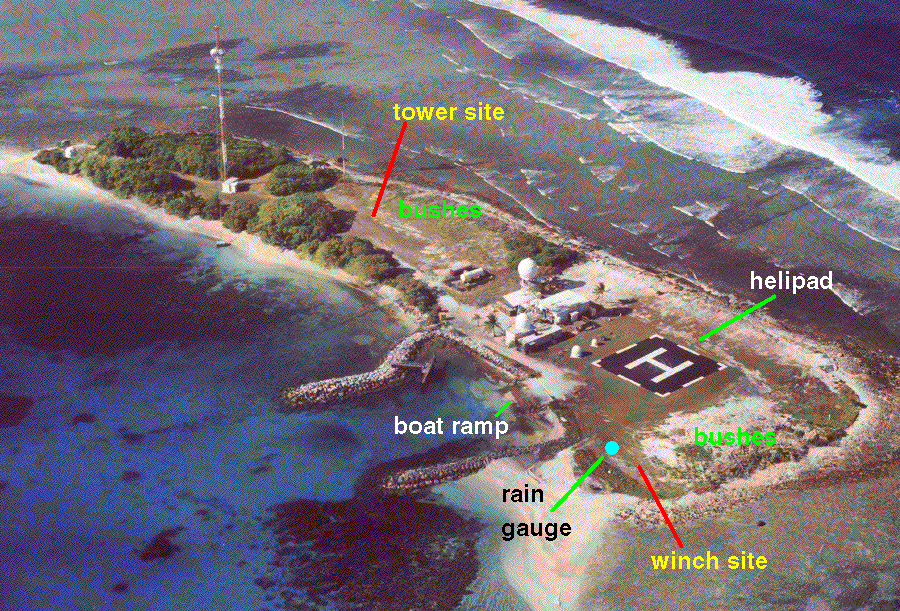 A new Benefits Review Board case addresses an interesting zone of special danger issue. Specifically, the case addresses the applicability of the zone of special danger doctrine to a local national employee who was injured in his home country.
A new Benefits Review Board case addresses an interesting zone of special danger issue. Specifically, the case addresses the applicability of the zone of special danger doctrine to a local national employee who was injured in his home country.
Factual Background:
In Jetnil v. Chugach Management Services, the employee was injured while he was fishing on the reef at Gagan Island (part of the Republic of the Marshall Islands). The employee slipped and cut his foot on the coral. His cut developed into a serious medical condition, ultimately requiring a below-the-knee amputation.
As with all zone of special danger cases, the obligations and conditions of the injured worker’s employment are incredibly important. Here, the employee was a citizen of the Republic of the Marshall Islands. He resided on Kwajalein Atoll, which is also home to the U.S. Army Space and Missile Defense Command’s Ronald Reagan Ballistic Missile Defense Test Site. The employee worked as a painter, working five eight-hour days per week. His usual work site was on Roi-Namur, a location that he traveled to on a daily basis in an employer-provided boat.
But, sometimes the employee also worked on Gagan Island (pictured above), where his injury occurred. Gagan Island is a desolate and isolated defense support island. During his Gagan Island stints, he remained on the island for five straight days and lived in “the only living quarters on Gagan Island, a three-bedroom trailer with a kitchen, living room, and bathroom.” The food, which the employer provided, consisted of bread, rice, chicken, hot dogs, and bacon.
The problem is that the employee has diabetes. In accordance with a doctor’s advise, the employee ate fish whenever possible. On the day he was injured, the employee was catching his own dinner. And five days later, his foot was amputated.
The Zone of Special Danger and Local Nationals:
The Benefits Review Board was tasked with making an important determination: deciding whether the zone of special danger doctrine may be “utilized in determining the compensability of an injury sustained by a local national.” A “local national” includes “individuals who are neither citizens nor residents of the United States and who are engaged in DBA-covered employment in their home countries.”
The zone of special danger is a doctrine that may be used in Defense Base Act claims to attach liability to injuries that occurred outside the typical course and scope of employment, “so long as the ‘obligations or conditions of employment’ creates a ‘zone of special danger’ out of which the injury arose.” Injuries are covered by the DBA when the injury resulted from “one of the risks of the employment, an incident of the service, foreseeable, if not foreseen.” Still, though, an employee might stray far enough from employment that their is no legitimate way to link the injured worker’s injury with employment. To determine whether the zone of special danger applies, courts must look at the totality of the circumstances.
Here, the totality of the circumstances supported application of the zone of special danger doctrine. In upholding the award of benefits and the application of the zone of special danger, the Board drew attention to the following circumstances:
- The employee’s injury occurred on a “small, uninhabited, restricted access island, to which [employee] was sent by employer.”
- After arriving on Gagan Island, neither the employee nor his co-workers could leave for at least four days.
- The only reason the employee was on Gagan Island–a restricted access island–was because of the obligations and conditions of his employment.
- The food supplied by the employer was not suitable for the employee’s diabetes; thus, fishing was a “foreseeable activity during claimant’s off-duty hours on Gagan Island.”
- It doesn’t matter that fishing (i.e., the activity in which the employee was engaged at the time of his injury) was a normal, every day activity on the Marshall Islands.
The Zone of Special Danger Is An Issue of Fact:
Finally, the Benefits Review Board also addressed whether the zone of special danger must be analyzed as an issue of fact or an issue of law. In Jetnil, the employer argued that “application of the zone of special danger doctrine to local nationals injured during off-duty hours in their own homelands is foreclosed, as a matter of law, by [prior court opinions].” The Board disagreed. The zone of special danger doctrine requires a factual determination. Period. The specific circumstances of each case must be analyzed.
Photograph courtesy of the University of Washington. The website on which the photograph was found contains additional information about Gagan Island. For instance, it says that there is “no dining, box lunches would be needed for all means” and that there is “no medical.”
Note: It looks like 2015 is shaping up to be an interesting year for zone of special danger cases. For more information about the zone of special danger and a recent decision from the First Circuit, take a look at my earlier post about the DiCecca case.
Invitation: If you are having an issue with your Defense Base Act claim, then contact Jon Robinson at (985) 246-3194 or [email protected] for a free case evaluation.
